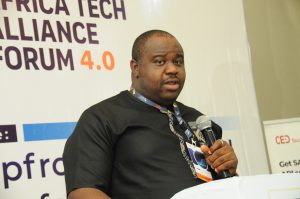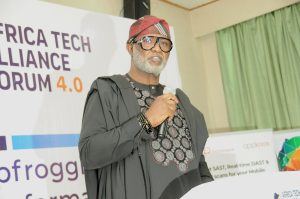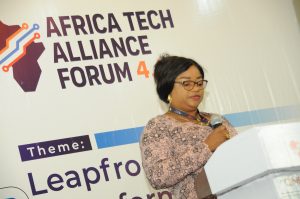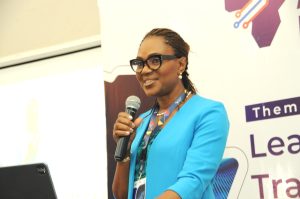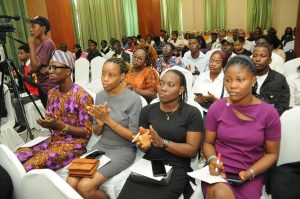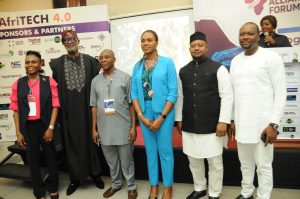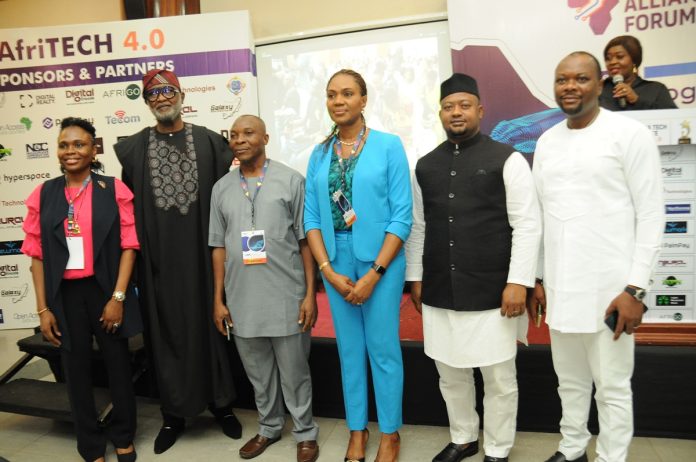Technology experts at the Africa Tech Alliance Forum (AfriTECH 4.0) held in Lagos State-Nigeria, recently, highlighted the transformative potential of blockchain and AI in positioning Africa as a global technology leader.
Kashifu Inuwa Abdullahi, the director-general of the National Information Technology Development Agency (NITDA), in his keynote address, titled “Blockchain Technology & AI: Positioning Africa for the Future,” emphasized Africa’s unique position to leverage these technologies for economic and social development.
With mobile penetration at about 80% and a rapidly growing youth population, Africa, he noted, is fertile ground for digital transformation, noting that Blockchain and AI offer unparalleled opportunities to propel Africa into the future as a leader in the global digital economy.
“Both blockchain and artificial intelligence are powerful technologies that offer Africa unprecedented opportunities. By strategically integrating these technologies, we can propel Africa forward as a dynamic leader in the global digital economy,” he said.
PHOTO: Mrs. Rita Shoremi, Head, Startup Innovations and IT solutions, NITDA, South West Zone
Abdullahi who was represented at the event by Mrs. Rita Shoremi, Head, Startup Innovations and IT solutions, NITDA, South West Zone, outlined the potential of blockchain to address challenges in financial inclusion, governance, and property rights across the continent arguing that with over 57% of Africans unbanked, blockchain can extend financial services to underserved regions, adding an estimated $300 billion to Africa’s GDP by 2025.
“Africa stands at a unique juncture. Our continent has seen remarkable digital growth, with mobile phone penetration reaching 80% across sub-Saharan Africa according to a World Bank, 2022 report.
“Africa is also home to one of the world’s fastest-growing youth populations, over 60% of whom are under the age of 25 by a UN Population Data of 2022. These dynamics offer a fertile ground for digital transformation, and emerging technologies like blockchain and AI have the potential to redefine key sectors that fuel Africa’s economy,” Abdullahi stated.
To fully capitalize on blockchain and AI, Abdullahi emphasized the need for supportive policies, strategic partnerships, and youth empowerment and noted that NITDA’s eight-pillar strategy aligns with Nigeria’s goals for digital literacy, infrastructure access, and global research collaboration, with a goal of achieving 70% digital literacy by 2027.
In his presentation titled “Navigating The Future of Technology In Africa: The Intersection of AI, Blockchain, Cryptocurrency and Cybersecurity,” Dr. Obadare Peter Adewale, the chief visionary officer, Digital Encode Limited, examined adoption trends, industry impact, and the key challenges across these technologies.
PHOTO: Oluwakayode Olatunji, CISO and Group Head of Information Security at Digital Encode Limited
Taking an overview of Emerging Technologies in Africa, Obadare who was represented by Oluwakayode Olatunji, CISO and Group Head of Information Security at Digital Encode Limited stated that Africa’s digital transformation is accelerating in key sectors like fintech, healthtech, and agritech that are adopting cutting-edge technologies such as AI, blockchain, and cryptocurrencies.
According to him, whereas mobile penetration, cloud computing, and increasing internet access are driving the growth of these technologies, these innovations come with risks and threats associated with cyberattacks, fraud, and data breaches and cautioned that a robust cybersecurity framework is crucial for sustainable digital transformation.
On his part, Mr. Biram Fall, the Regional General Manager, QNET Sub-Saharan Africa, said that with over 350 million unbanked adults, there is a significant potential of financial inclusion and digital solutions for Africa, and a vast opportunity to expand access to financial security, event through electronic commerce (eCommerce).
Speaking as a lead presenter at the AfriTECH 4.0, Mr Fall stated that financial inclusion transforms lives by providing essential financial tools like savings accounts, credit, and insurance, which foster economic independence.
PHOTO: Biram Fall, the Regional General Manager, QNET Sub-Saharan Africa
Highlighting the importance of the Forum’s theme, “Harnessing Fintech Solutions for Financial Inclusion & eCommerce Growth,” he said”: “The demand for financial inclusion aligns with a projected $75 billion e-commerce market in Africa by 2025, driven by rising internet access and smartphone adoption. However, limited banking infrastructure and high cash dependency hinder digital engagement,” he said.
He disclosed that QNET’s initiatives, such as its “Fit Green” financial literacy programme, have trained over 1,500 young Nigerians, promoting financial self-sufficiency and entrepreneurship through an e-commerce-driven direct-selling model active in over 100 countries.
“Our e-commerce driven direct-selling model provides income-generating opportunities in over 100 countries, promoting entrepreneurship and self-sufficiency in low-income regions. True progress requires collaboration.
Prof. Ibrahim Adeyanju, the Managing Director/Chief Executive Officer of Galaxy Backbone, underscored the importance of building sustainable digital infrastructure to fuel Africa’s economic transformation.
PHOTO: Nnamdi Onoh, Field Service Engineer at Galaxy Backbon
Presenting a paper titled: Building Digital Infrastructure for a Sustainable Digital Economy, through a representative, Mr. Nnamdi Onoh, Field Service Engineer at Galaxy Backbone, Prof. Adeyanju noted that technology has the potential to redefine Africa’s economic trajectory, and that at Galaxy Backbone, they are dedicated to building the foundational digital infrastructure that supports this vision.
According to him, “Africa’s digital journey presents immense opportunities, but it requires robust, scalable, and sustainable infrastructure to enable economic growth. Galaxy Backbone’s mission aligns directly with these goals, as we work to provide the infrastructure and connectivity that powers government services, businesses, and communities across Nigeria.”
He said that today, digital infrastructure is much more than just technology but about creating resilient systems that empower citizens, foster economic empowerment, and drive inclusive growth. “Our investments in state-of-the-art data centres, fibre optic networks, state of the art SOC and secure cloud solutions have created a backbone that supports Nigeria’s public sector and enables interconnectivity among MDAs,” he said.
Nodding in agreement, Mrs. Ebehijie Momoh, the chief executive officer of AfriGoPay Financial Services Limited, said that the company, working with Nigerian banks and the Central Bank, aims to reduce payment processing costs, thus supporting the nation’s financial inclusion goals.
PHOTO: Mrs. Ebehijie Momoh, the chief executive officer of AfriGoPay Financial Services Limited
Momoh noted that with a population exceeding 220 million and mobile penetration reaching a notable 90%, Nigeria is well-positioned for a digital transformation that supports a burgeoning economy, adding that over 103 million Nigerians, or 45.5% of the population, are now internet users, underscoring the potential for digital growth.
“According to a 2023 report, the country’s financial inclusion rate rose to 64%, an impressive increase from the 50s just two years prior. This growth is driven in part by the Central Bank of Nigeria’s (CBN) initiatives focused on financial inclusion, fostering an environment where more Nigerians can access essential financial services,” she said.
PHOTO: A cross section of attendees at AfriTECH 4.0/ATAEx Awards
The AfriGoPay Chief Executive expressed delight that Nigeria’s digital payments landscape is also experiencing rapid expansion, with 2023 alone seeing an estimated $730 billion in transactions and noted that the advent of domestic payment solutions, like the recently launched AfriGo card, represents a home-grown option that facilitates cashless payments.
“The AfriGo card, developed in collaboration with Nigerian banks and the CBN, is designed to reduce costs by processing transactions in local currency instead of foreign exchange, thus supporting the nation’s financial inclusion goals.
AfriTECH 4.0 attracted both physical and virtual attendees from Nigeria, Kenya, Egypt, United Kingdom, United States, South Africa, amongst others.
